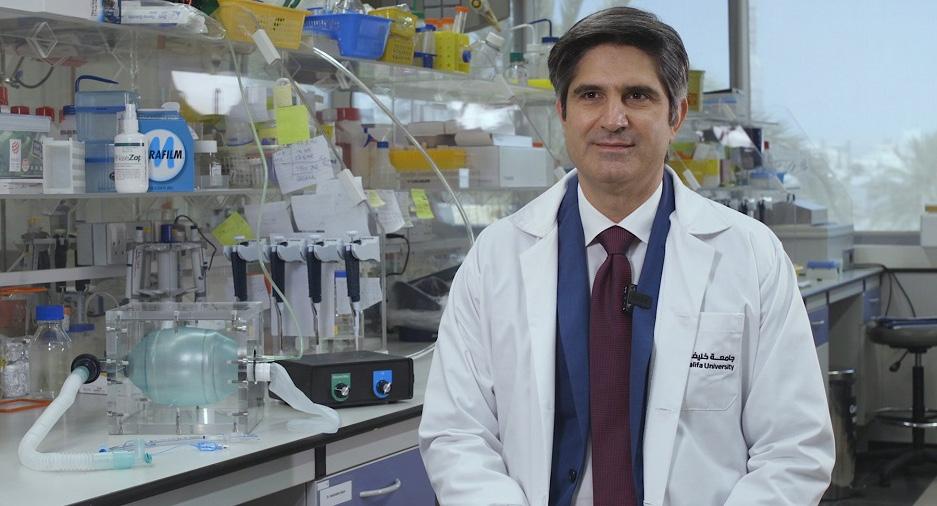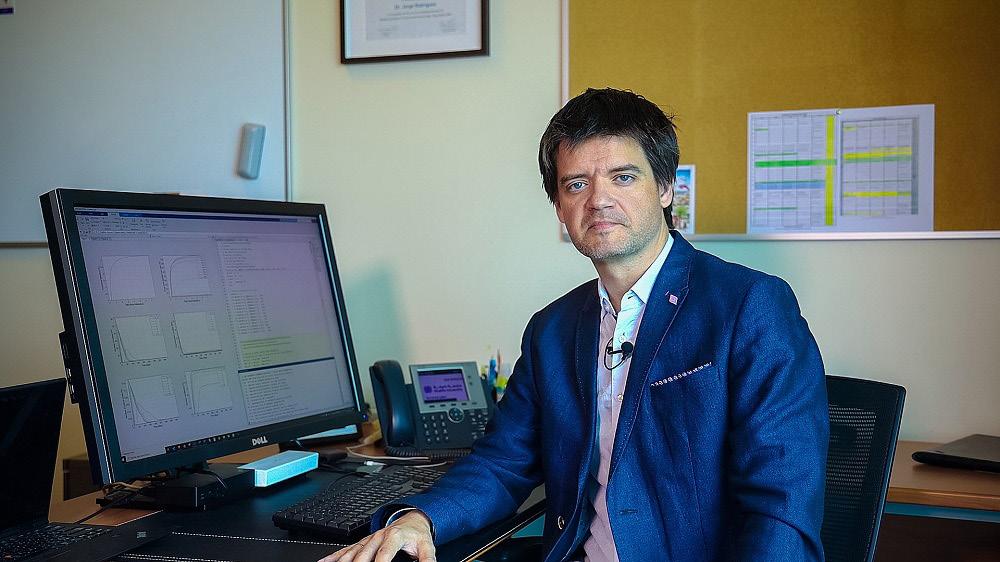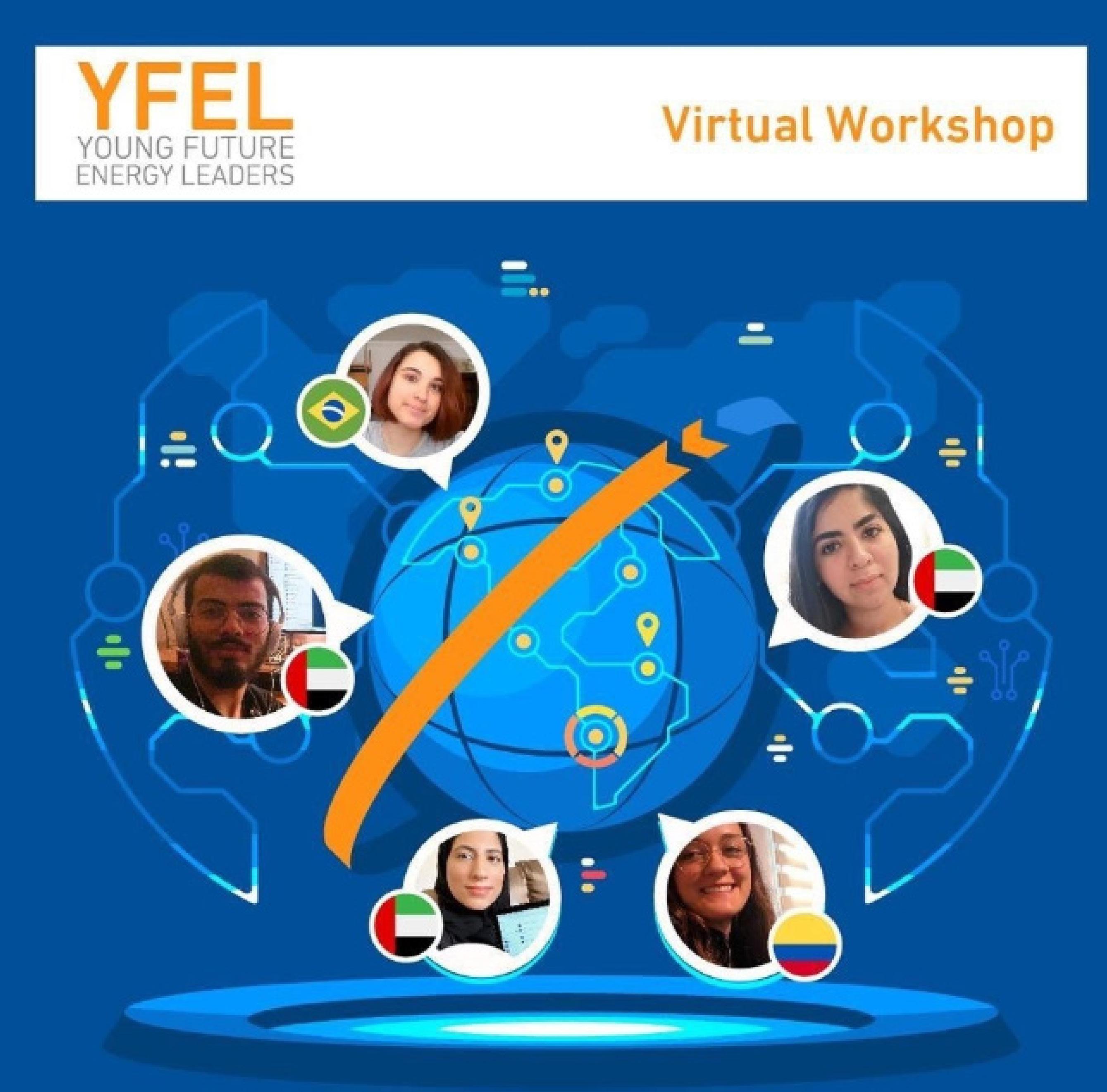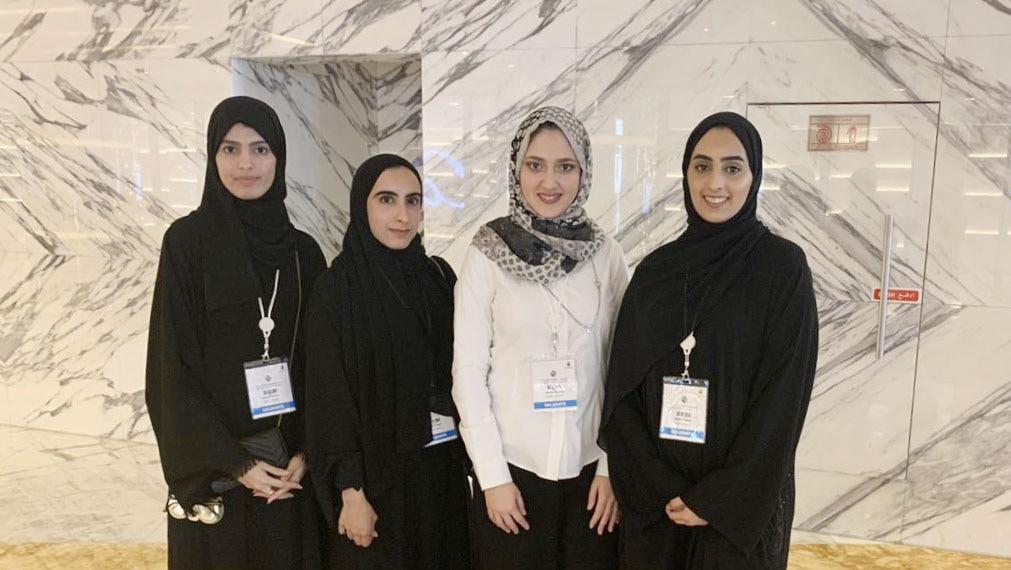
5 minute read
Coronavirus: An Epidemiologist’s Insight from Khalifa University
Dr. Juan Acuna, Associate Professor of Epidemiology & Population Health at Khalifa University, Provides an Overview of Coronavirus. He Explains Why the Virus Spreads Quickly, and Offers Important Precautionary Tips to Prevent it from Spreading Further

Khalifa University Responding to Covid-19 with Emergency Ventilators
https://www.youtube.com/watch?v=XRvOKuwGXks&t=1s

A MULTI-DISCIPLINARY TEAM IN THE UAE HAS DEVELOPED AN AFFORDABLE, SIMPLE, AND EASY-TO-MANUFACTURE VENTILATOR PROTOTYPE. THE PROTOTYPE VENTILATORS COULD SERVE AS A STOP-GAP MEASURE, GIVING DOCTORS PRECIOUS TIME UNTIL AN ADVANCED VENTILATOR BECOMES AVAILABLE.
Researchers at Khalifa University’s Healthcare Engineering Innovation Center (HEIC) are stepping up to serve in the UAE’s project to develop emergency ventilators. The researchers have developed a working prototype and are now engineering the production plant to be able to produce the ventilators at scale to meet rising local and global demands.
The team, led by Dr. Cesare Stefanini, Professor of Biomedical Engineering and Director of HEIC, is working in response to the global need for increased ventilator manufacturing capacity due to Covid-19. Though Covid-19, the disease caused by the novel coronavirus, often begins as an upper respiratory tract infection with a cough and sore throat, it can enter the lower respiratory tract, where it damages the lung’s alveoli, flooding them with inflammatory cells and fluid. This makes it harder for oxygen to travel from the lungs to the bloodstream, reducing the oxygen available to the organs that depend on it.
Acute respiratory distress syndrome is the term for the rapid and extensive lung damage that occurs from a severe case of pneumonia. If a patient’s lungs are so compromised that they can’t get enough oxygen, a ventilator is used to provide more oxygen to the body.
Khalifa University Develops New Mathematical Model that Can Help Decision Makers Plan Effective Interventions to Reduce Impact of Coronavirus

https://www.youtube.com/watch?v=80mOTLA_a60 Infectious diseases, especially when new and highly contagious, have the potential to be devastating. Predicting how the disease will spread and how many fatalities it will cause is crucial for societal and healthcare planning and forecasting of resource needs, and for evaluating the impact any intervention would have.
A team of researchers from Khalifa University, led by Dr. Jorge Rodríguez, Associate Professor of Chemical Engineering, has developed a model of the Covid-19 disease impact on a population to provide a stepping stone for non-experts and policymakers to understand what to expect as the disease spreads. An article with the model and results has already been published in preprint form in MedRxiv. They designed the model to be open source, making it available to anyone who wants to plug in the parameters. The model is available here: https:// envbioprom.shinyapps.io/Covid19_Model_KU/
How Research into Violent Crime Can Help Understand the Spread of Disease

At first glance, violent crime and the novel coronavirus may not seem related. However, the spatial statistic methods used in a paper by Dr. Jorge Zubelli, Chair and Professor of Mathematics at Khalifa University, that studies violent crime in a metropolitan area, can be applied to the current global health situation.
“Although our paper is not about the coronavirus, it is related to the use of spatial statistical methods to address another type of disease: crime and violence,” explained Dr. Zubelli. “For our case study, we used statistical inference techniques to analyze gun shootings in highly populated areas, with the ultimate goal of predicting hot spots and addressing them with law enforcement or social measures. The characterization of the stochastic behavior is crucial for that which we do in our research using a database of shootings from collective information gathered through a mobile application.”
YFEL Members Complete First Online Lecture on Leadership

Khalifa University Lecturer Dr. Kevin Garvey successfully conducted an online workshop, titled “Leadership: The Self, with Others, in Business and Innovation,” to 27 students and international members of KU’s Young Future Energy Leaders (YFEL) program. The YFEL program is KU’s flagship outreach program in the field of sustainability. Congratulations to all YFEL members who completed the course!
Khalifa University Wins Senior Design Competition Organized by IEOM Society International

A paper by senior students from the Industrial and Systems Engineering Department at Khalifa University has won first place in the IEOM Capstone Student Design Project Competition that was part of the 2020 International Conference on Industrial Engineering and Operations Management (IEOM).
The team was represented by Maha Al Dhaheri, Mariam Ramadan, Afra Al Mheiri, and Maryam Al Shehhi, and was supervised by Dr. Mecit Can Emre Simsekler, Assistant Professor of Industrial and Systems Engineering, and Dr. Saed Amer, Assistant Professor of Industrial and Systems Engineering.
Their paper, titled “Improving Patient Discharge Process,” showcases their design project, which aims to improve the patient discharge process for an inpatient clinic of a local hospital in Abu Dhabi. Leveraging industrial and systems engineering principles, the students proposed a simulation-based approach to streamline the patient discharge process and consequently improve the patients’ experience.
Detecting Asteroids Before They Hit Earth

Khalifa University Researchers Advance Algorithms to Quickly and Accurately Calculate the Minimal Orbital Intersection Distance of Near-Earth Objects Far from merely a subgenre of science and disaster fiction, how to detect large asteroids that may collide with Earth is a real field of study and concern. A sufficiently large impact by an asteroid could cause massive tsunamis, multiple firestorms and an impact winter from dust and other debris in the stratosphere blocking sunlight, such as the collision 66 million years ago thought to have caused the Cretaceous-Paleogene extinction event, widely held responsible for the extinction of most dinosaurs.
According to the US National Aeronautics and Space Administration (NASA), efforts to deflect a large object on a collision course with Earth would require at least five years of preparation.
AI Applications in Rain Enhancement and Meteorology

Weather significantly impacts society for better and for worse, and improving our ability to forecast and predict weather events is crucial for myriad reasons. An increased notice period for a hurricane could improve safety measures for people at risk, while improved solar predictions can help optimize renewable power production.
Applying artificial intelligence (AI) techniques in conjunction with our physical understanding of the environment can substantially improve prediction of extreme weather events, like hurricanes, and unlock important insights from the climate data that is collected.
“Artificial intelligence and related data science methods have been developed to work with big data across a variety of disciplines,” explained Dr. Ernesto Damiani, Senior Director of the Artificial Intelligence and Intelligent Systems Institute at Khalifa University.
AI techniques can handle large numbers of predictor variables, integrate physical understanding into models

